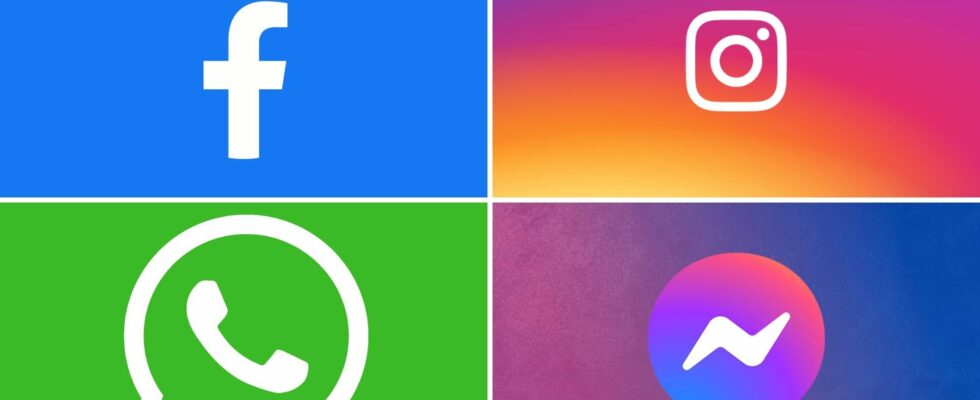Like Apple and Google, Meta must adapt to the new rules of the Digital Markets Act, which recently came into force in the European Union. Facebook, Instagram, Messenger, WhatsApp: several changes are coming to Meta’s social networks and messaging systems, here they are.
On March 6, 2024, the Digital Markets Act, or DMA, came into force in the 27 member countries of the European Union. Aiming to regulate the digital market, it imposes many new rules on Gamam, of which Meta is a part. The so-called “services access controllers » retained by the European Commission are Facebook, Instagram, WhatsApp and Messenger. Threads is not affected since the application is not used enough in Europe.
The two social networks and the two instant messaging applications must therefore meet stricter requirements. All Meta changes to comply are recorded in a document viewable online. Meta is not the only company to have to make changes because of the DMA:
WhatsApp and Messenger interoperable ” : What does it mean ?
On the Meta side, there is a major change: WhatsApp and Messenger will become “ interoperable “. This means that the two instant messaging applications will have to be able to communicate with each other, but not only that. For a certain number of features, they must be fully compatible with messaging services using the Signal protocol (including Signal of course).
This means that you can send a message from Signal and receive it on Messenger, or send a message from WhatsApp and receive it on Telegram. For the moment, this possibility is not activated, but we know that Meta is working on it: in any case, the company has no choice. Messages from third-party messaging services will be displayed in a separate tab of the inbox.

For now, the features that are part of the Digital Markets Act requirements include “ on 1:1 text messaging between individual users and on sharing images, voice messages, videos and other file attachments between individual end users », writes Meta. We know that in the future, the law will be extended to groups and audio/video calls. To be interoperable with WhatsApp and Messenger, messaging services will have to meet a certain number of technical and security requirements, as well as sign an agreement with Messenger and/or WhatsApp.
At the moment, Meta has only released details for WhatsApp interoperability, but plans to release those for Messenger. The company says it is obligated to “ enable interoperability with other services within three months of receiving a request “. However, some time may still pass between acceptance of the request and implementation of interoperability.
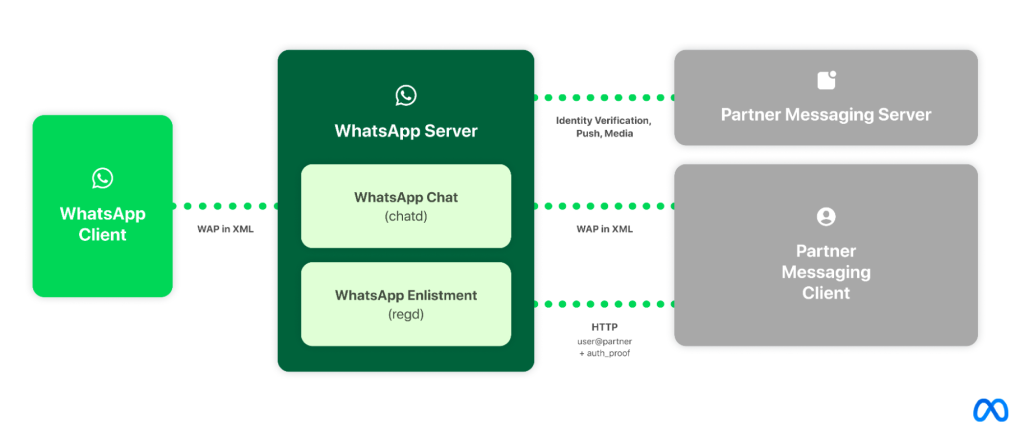
The E2EE encryption protocol of Messenger and WhatsApp is based on the Signal protocol. Other messaging services that want to be interoperable must therefore use this same protocol. Meta will let third-party service providers use another compatible protocol ” if they are able to demonstrate that it offers the same security guarantees as Signal. » The servers responsible for transmitting user messages will be permanently connected to each other. Meta indicates that it will be to third-party servers ” to host media files that their client applications send to Meta clients “.
Furthermore, Meta will maintain a certain control over sending and receiving users, in order to guarantee “ that no one can listen to your conversation without both parties knowing. » However, the promise cannot be made for messages sent and received via a third-party service, since it is the latter who will be responsible.
In fact, messengers will be required to connect to the already existing Meta infrastructure. The idea of this obligation is, according to Mark Zuckerberg’s company, to guarantee a certain level of security, reduce financial barriers to entry for its competitors and improve the reliability of the service. WhatsApp and Messenger enable the sending (and receiving) of 100 billion messages every day.

In its explanation, Meta specifies that it is in discussion with other instant messengers. Perhaps in the future, a proxy server “ intermediate » between the client and the Meta servers will be set up, which “ could potentially give third-party providers more flexibility and control over what their client can receive from the WhatsApp server “.
However, there remain technical challenges to overcome according to Meta, mainly to prevent spam and other scam messages.
The separation of Facebook and Messenger accounts
Instagram accounts connected to Facebook accounts will now be able to see their information separately. On Messenger, Meta will backtrack. Originally, it was possible to create a Messenger account alongside a Facebook account. Subsequently, the possibility was removed. Meta must come back to this and allow you to create an independent Messenger account, including for already existing Facebook accounts.
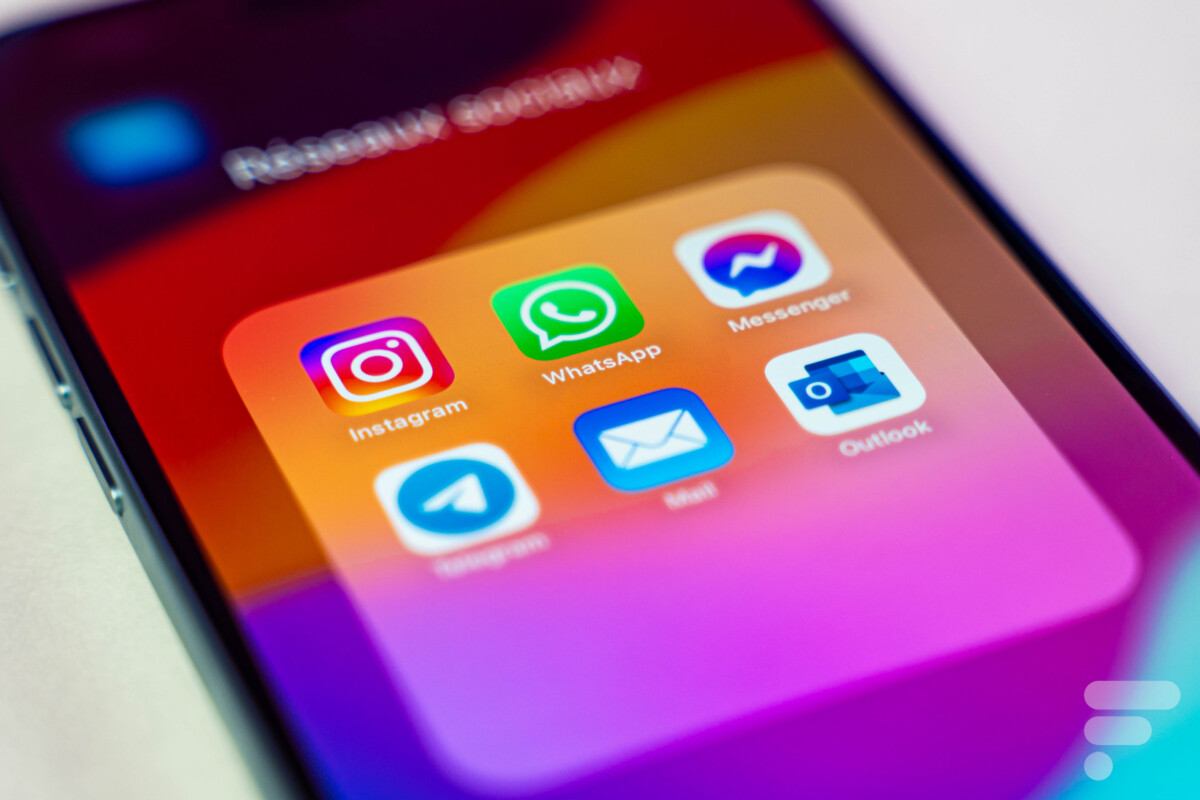
Not all features are available for these accounts ” independent “, but there are still the basic functions: ” the ability to send and receive message requests, call and message end users privately and via group chats (with the ability to send and receive photos, videos and audio messages) », writes Meta. Among the missing features, we can imagine that the contact suggestions to add to Messenger will not be based on your friends on Facebook.
Combining data is no longer obligatory
To better personalize its advertisements, Meta combines the data it collects on its different services. With the DMA, the company is obliged to request consent for the combination of data for Facebook, Instagram, Messenger, Facebook Marketplace, Facebook Gaming Play and Facebook Dating.
Even Facebook Marketplace, Facebook Gaming and Facebook Dating are affected by the DMA
Facebook Marketplace is also undergoing changes. As a reminder, this is the “ The good corner » from Facebook, directly integrated into the social network. Users can decide whether to use their Facebook account information there or not. If they choose not to do so, they will no longer be able to communicate with buyers/sellers via Messenger: this will necessarily be done by email. This is the only difference: affected users will still be able to buy and sell products. Facebook Marketplace also becomes accessible without a Facebook browser account.
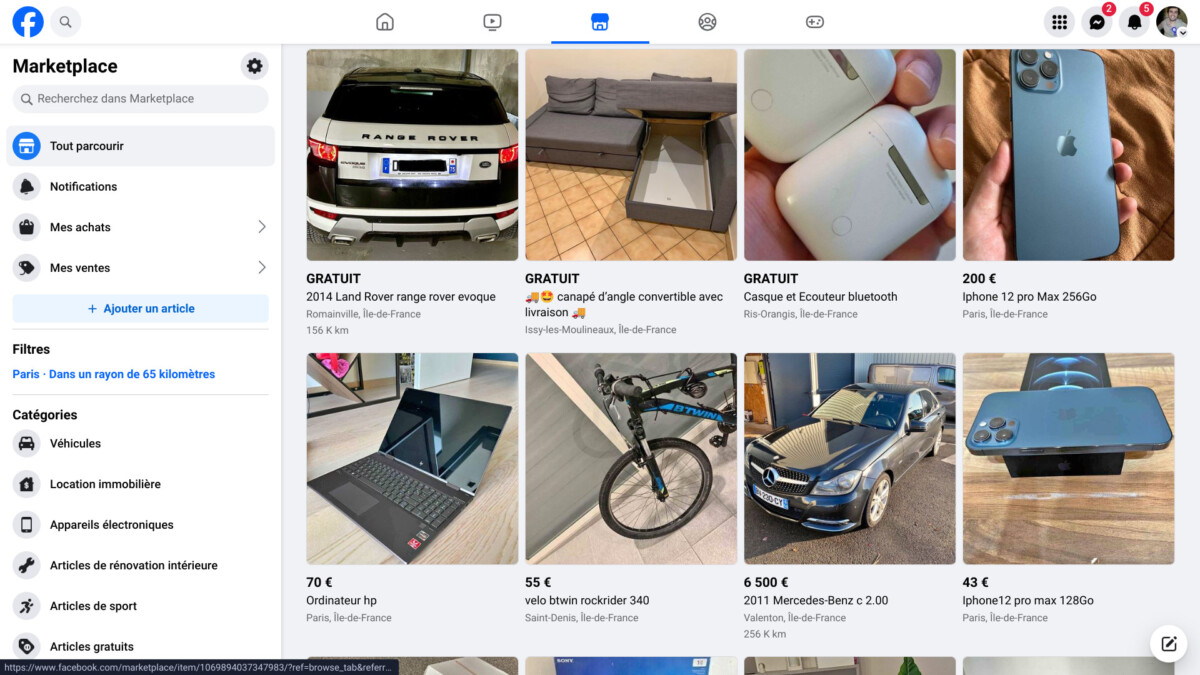
Same thing for Facebook games: they may no longer use your information from your Facebook account if you choose to do so. A choice not recommended because it has serious consequences: only players who keep their account connected will be able to keep “ features such as multiplayer games, in-game purchases, and personalized game suggestions », Specifies Meta in a press release. In fact, players who dissociate their game account from their Facebook account will only be able to play single-player games: no more FarmVille. Meta, however, announced to the European Commission that it was working with game developers in order to offer more titles.

As for Facebook Dating, it’s not exactly the same thing: Meta indicates that it cannot offer the dating service to users who refuse the combination of Facebook data, ” because Meta cannot meet fundamental privacy commitments “. Indeed, if Meta did not combine data from Facebook (the social network) with Facebook Dating (the dating service), then users would be able to see their Facebook friends on Facebook Dating. However, it should be noted that Facebook Dating asks certain questions that the social network does not necessarily have: children, height, the meetings you wish to make, etc.
Advertising at Meta is changing: pay to no longer have ads
In a blog post, Meta implied a certain dissatisfaction: its advertising pays off, especially if it is personalized. According to the company, one euro spent in Europe on advertising generates on average 3.37 euros in revenue: this would represent 84 billion euros in revenue for advertisers each year. However, with the arrival of the Digital Markets Act, the firm is forced to cut back on tracking for advertising purposes. Fortunately, she has more than one trick up her sleeve and has found a solution.
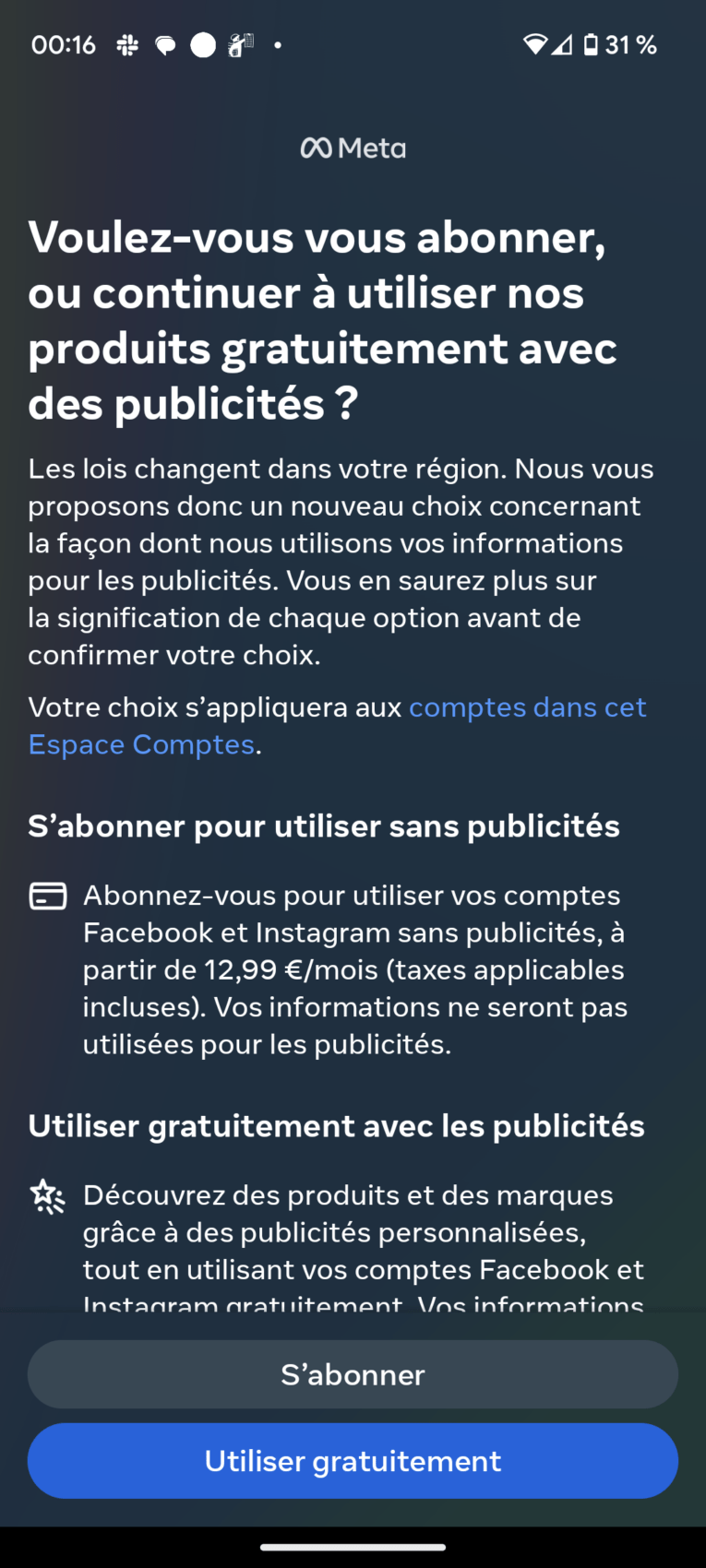
Meta states that “ Residents of the EU, EEA and Switzerland also have the option to use Instagram and Facebook for free with ads, or to subscribe to no longer see ads. » If users subscribe, their information will no longer be used for advertisements. A subscription at 9.99 euros per month for Facebook and Instagram (12.99 if you subscribe from an iOS or Android smartphone).
For each account added subsequently, count on 6 euros more each month. It is in fact a consent solution that aims to comply with the DMA and other European laws, such as the Digital Services Act, which have different compliance deadlines. If 10 euros per month for not consenting to being tracked and avoiding advertisements may seem like an abusive price, Meta is within its rights according to Meta. To do this, the company relies on the case law of the Court of Justice of the European Union (CJEU), the highest court on the Old Continent. It recognizes that not paying for a subscription constitutes users’ consent to the processing of their personal data for targeted advertising purposes.
